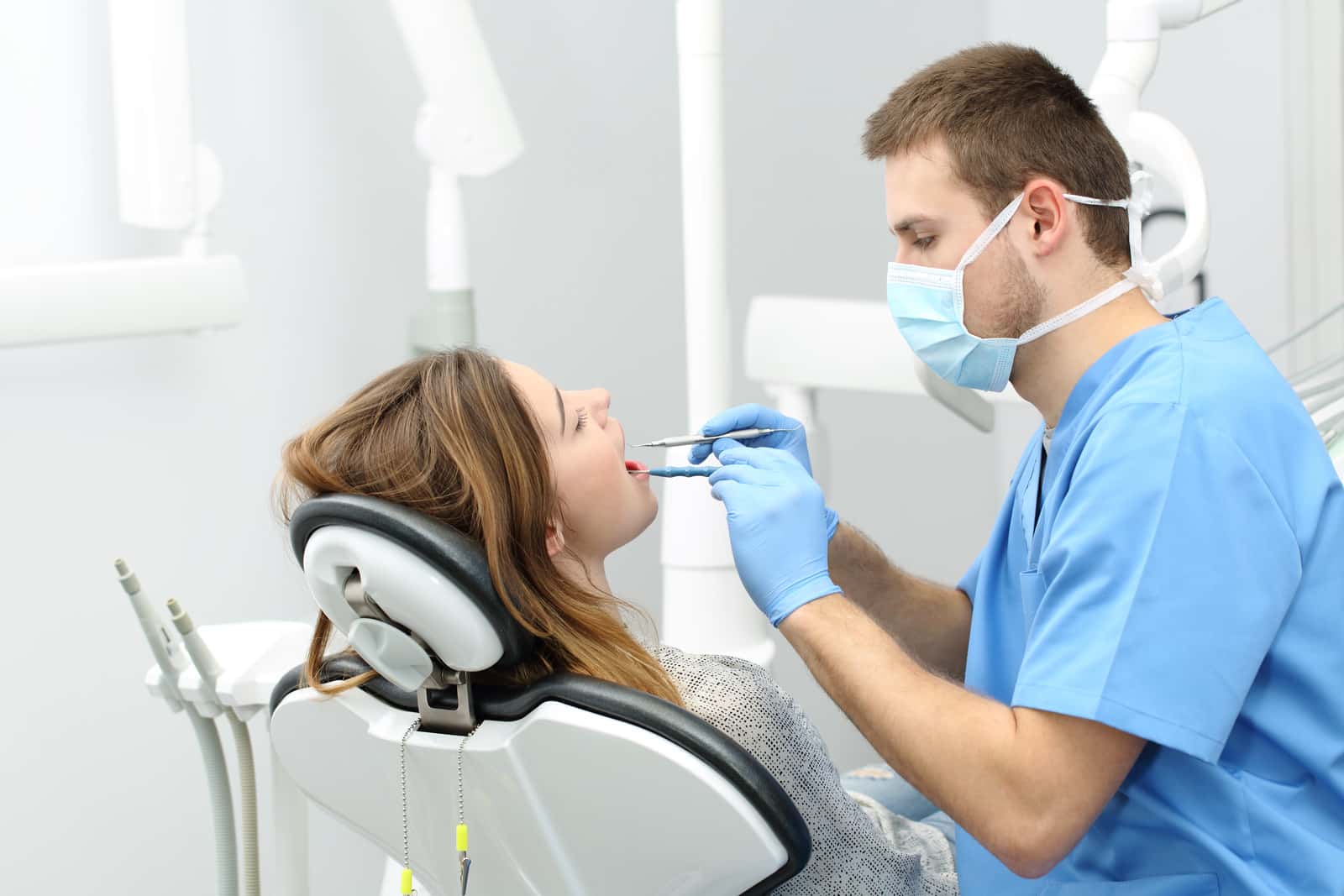Why You Ought To Choose a Neighborhood Dentist Eugene for Personalized Treatment
Why You Ought To Choose a Neighborhood Dentist Eugene for Personalized Treatment
Blog Article
Learn Regarding Frequent Oral Problems Your Dental Professional Can Fix
Understanding frequent dental problems is essential for preserving optimum oral wellness. Issues such as tooth cavities, gum tissue illness, tooth sensitivity, negative breath, and tooth decay are typical yet usually forgotten until they become extreme. Routine oral visits and individualized treatment plans can address these problems successfully, guaranteeing a healthier and brighter smile.
Tooth Cavities
Cavities, additionally called cavities, are a common dental wellness issue brought on by the demineralization of tooth enamel due to acid manufacturing from bacterial plaque. This process starts when microorganisms in the mouth metabolize sugars and starches from food, producing acids that wear down the enamel. Otherwise attended to immediately, this erosion can permeate much deeper into the tooth, affecting the dentin and eventually the pulp, potentially resulting in severe discomfort and infection.
The onset of cavity formation typically existing as white areas on the tooth surface, suggesting preliminary demineralization. As the process advances, these places can establish right into brownish or black sores, symbolizing more comprehensive decay. Routine dental check-ups are crucial for very early discovery, as cavities in their nascent phases can be treated with remineralization techniques, such as fluoride therapies.
Once a dental caries has created, restorative intervention is necessary. Dental professionals typically get rid of the corroded portion of the tooth and fill the cavity with products such as composite material, amalgam, or ceramic. In more extreme instances, a crown or origin canal treatment may be needed. Precautionary actions, including excellent dental health techniques and nutritional adjustments, play a critical role in alleviating the risk of tooth cavities.
Gum Tissue Disease
While tooth cavities stand for a significant concern for oral health and wellness, another important problem that requires interest is periodontal illness. Recognized as periodontal illness, gum disease is an inflammatory condition influencing the tissues surrounding and sustaining the teeth. It is largely created by the build-up of plaque-- a sticky movie of microorganisms that forms on teeth.
Gum disease progresses with stages, beginning with gingivitis, characterized by redness, swelling, and bleeding periodontals (dentist eugene or). If left without treatment, gingivitis can rise to periodontitis, where the internal layer of the periodontal and bone pull away from the teeth, developing pockets that end up being infected. With time, the contaminants created by the microorganisms damage down the bone and connective tissue that hold teeth in place, potentially causing missing teeth
Early discovery and therapy are vital. Specialist dental cleanings and improved oral hygiene techniques, such as brushing two times daily and flossing, can manage gingivitis. For advanced phases, therapies might include scaling and origin planing, anti-biotics, or even medical treatments.
Routine oral examinations play a critical function in avoiding and handling gum disease. Dental practitioners can identify early indications and advise suitable treatments, making sure the upkeep of healthy and balanced periodontals and total dental health.
Tooth Level Of Sensitivity
Tooth sensitivity influences countless individuals worldwide, providing an usual yet frequently distressing dental problem. This problem develops when the enamel, the outermost safety layer of the teeth, is endangered, exposing the underlying dentin. The dentin contains tiny tubules that lead directly to the dental pulp, where nerves live. When subjected to stimulations such as warm, cool, wonderful, or acidic read this substances, these nerves are caused, causing sharp discomfort or discomfort.
Numerous elements add to enamel disintegration and subsequent tooth level of sensitivity, including hostile brushing, acidic foods and beverages, gum recession, and bruxism (teeth grinding) Additionally, oral treatments such as teeth bleaching can momentarily heighten level of sensitivity.
Foul Breath
One more common oral worry that impacts individuals' day-to-days live is negative breath, medically labelled bad breath. This condition can be particularly upsetting, influencing personal communications and self-worth. Bad breath commonly stems from poor oral health, which enables food particles to stay in the mouth, cultivating bacterial development. These microorganisms generate sulfur compounds, causing undesirable smells.

Referrals may include boosting oral hygiene techniques, such as normal brushing and flossing, utilizing antibacterial mouth washes, remaining moisturized, and dealing with any kind of oral problems. Efficient management of bad breath not just boosts dental wellness yet also substantially improves quality of life.
Tooth Decay

Stopping dental cavity entails a combination of great dental hygiene practices and routine dental exams. Cleaning teeth a minimum of two times daily with fluoride tooth paste, flossing to remove plaque between teeth, and limiting the consumption of sweet foods and drinks are crucial safety nets. Fluoride treatments, read this article dental sealants, and specialist cleansings provided by a dental expert can also play a substantial role in fortifying enamel and avoiding degeneration.
Dental practitioners can eliminate corroded tissue and bring back the tooth with fillings made from products such as composite resin, amalgam, or porcelain. By addressing tooth degeneration immediately, dental practitioners aid maintain dental framework and feature, ensuring long-term oral wellness.
Conclusion
Addressing common oral problems such as tooth cavities, gum tissue condition, tooth level visit the site of sensitivity, halitosis, and dental cavity is essential for preserving optimum oral wellness and overall wellness. Dental professionals have the know-how to detect and treat these concerns effectively, guaranteeing customized take care of each client. Normal oral examinations and safety nets are crucial in identifying and taking care of these concerns early, advertising a much healthier and much more confident smile over a life time.

Tooth degeneration, also understood as oral decays, happens when the enamel, the outermost layer of the tooth, is deteriorated by acids generated by germs in the mouth. Cleaning teeth at least twice daily with fluoride tooth paste, flossing to eliminate plaque in between teeth, and restricting the intake of sugary foods and drinks are necessary precautionary procedures.Resolving typical dental worries such as tooth cavities, gum tissue illness, tooth level of sensitivity, negative breath, and tooth degeneration is critical for keeping optimum dental health and wellness and general health.
Report this page